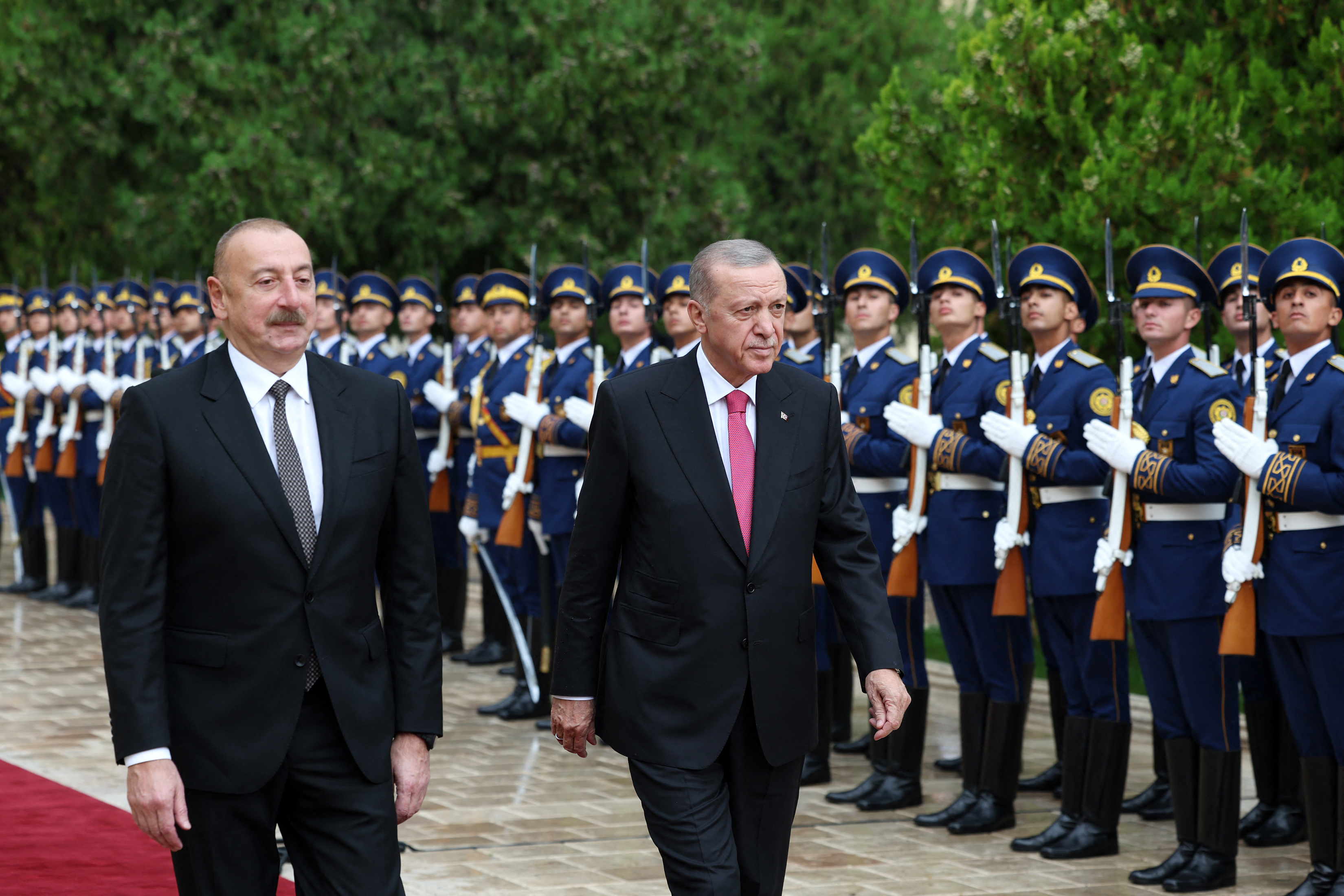
Construction was formally launched at a ceremony in Nakhchivan on September 25 attended by Azerbaijani President Ilham Aliyev and Turkish President Recep Tayyip Erdoğan which saw the signing of agreements on energy, transport and public housing, Eurasianet reported.
The new pipeline, which is being constructed under a memorandum of understanding signed between Azerbaijan and Turkey in December 2020, and is expected to be completed by the end of 2024, will run for 80km inside Turkey between Turkey's main transit pipeline at Igdir to the border, and then for a further 17.5km inside Nakhchivan.
Once complete, the line will enable Azerbaijan to supply Nakhchivan with its own gas delivered via Turkey, ending the enclave's dependence on Iranian gas imported directly through a separate pipeline from Iran.
Nakhchivan's annual gas demand is reported to be around 500 million cubic meters a year with President Aliyev's official website reporting that the pipeline being laid will have a capacity of around 2 million cubic meters a day, or around 730 million cubic meters a year which "can be more than doubled."

That ultimate capacity of around 1.5 billion cubic meters a year appears to be borne out by documents relating to the construction tender for the Turkish section of the line which specify a pipeline with a diameter of 16 inches.
If so, that would for the time being at least put to rest speculation that Baku is interested in laying a major gas export pipeline through its proposed "Zangezur corridor" that would connect mainland Azerbaijan with Nakhchivan through Armenia.
Speaking in March, Azerbaijan's energy minister Parviz Shahbazov suggested that the Zangezur corridor could be used as both a transport and energy corridor between Azerbaijan and Europe, but did not clarify further on whether this would include gas exports.